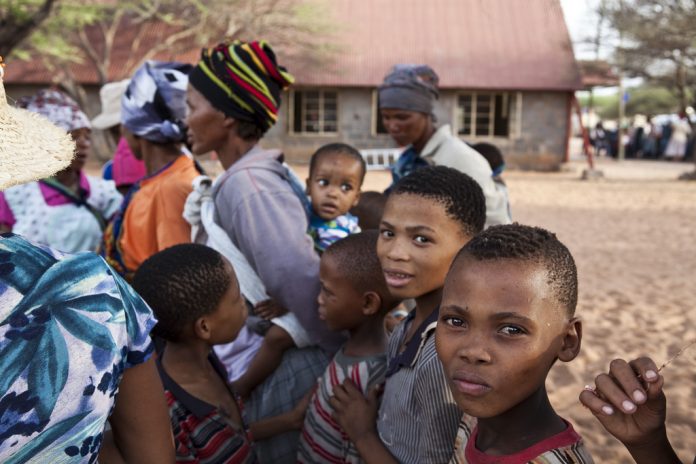
Researchers from Uppsala University in Sweden led by Carina Schlebusch authored an article published this Thursday in the journal Science, which reveals that modern humans might have actually originated some 260,000 to 350,000 years ago. The Khoisan people in Southern Africa are their furthest descendants.
This new study coincides with other researchers’ findings earlier in June. Scientists traced the origins of ancient human fossils in Morocco and estimated they were roughly 300,000 years old, the oldest ever found for our species.
The discoveries suppose a shift in the paradigm of what we know about ourselves as Homo sapiens and change both the temporal and geographical landscape of our beginnings in the world. Africa, however, remains undoubtedly an important piece of the history of humankind.
Stone Age child reveals that modern humans emerged more than 300,000 years ago https://t.co/9m4L4lnlS5 pic.twitter.com/vYqu9GnxY0
— Science (@scienmag) September 28, 2017
We might be twice as old as we previously believed we were
Fossil records put us on Earth as far back as 180,000 years ago, with the first humans coming out from North Eastern Africa, in what would be Ethiopia today. Swedish and South African researchers debate both the date and the specific location from which we stemmed.
New data from old sequenced genomes actually push those boundaries back at least some 80,000 more years, with conservative estimates rounding our age around 300,000 years old. This same data suggests there is a chance we could be even older, topping at 350,000 years of age.
Judging by these fossils and the ones found near Morocco, some scientists believe it is somewhat reasonable to assume that we as species did not originate at just one place, but more like emerged across the continent of Africa as Homo erectus and Homo heidelbergensis groups evolved.
WHO are the Khoisan bushman? Report from 2010.https://t.co/yOfCAiXFIs
— BreakTheSilenceRSA (@ObliterationRSA) September 25, 2017
Khoisan populations are the heirs of the first humans
The new research was based on the knowledge scientists had about Khoisan peoples’ DNA, which is particularly unique when contrasted with other African tribes. The Khoisan, as it turns out, still share enough of their genome with our earliest ancestors.
Scientists sequenced the genome of a Khoisan fossil that was more than 2,000 years ago because they knew younger remains might be mixed with DNA from other populations that migrated to this region.
The Homo heidelbergensis that stayed in Africa evolved into Homo sapiens in different regions over time, while the same proto-human groups that relocated to Europe and Asia became Neanderthals and Denisovans respectively. There is some debate now over their place as a species in our family tree.
Source: Science











